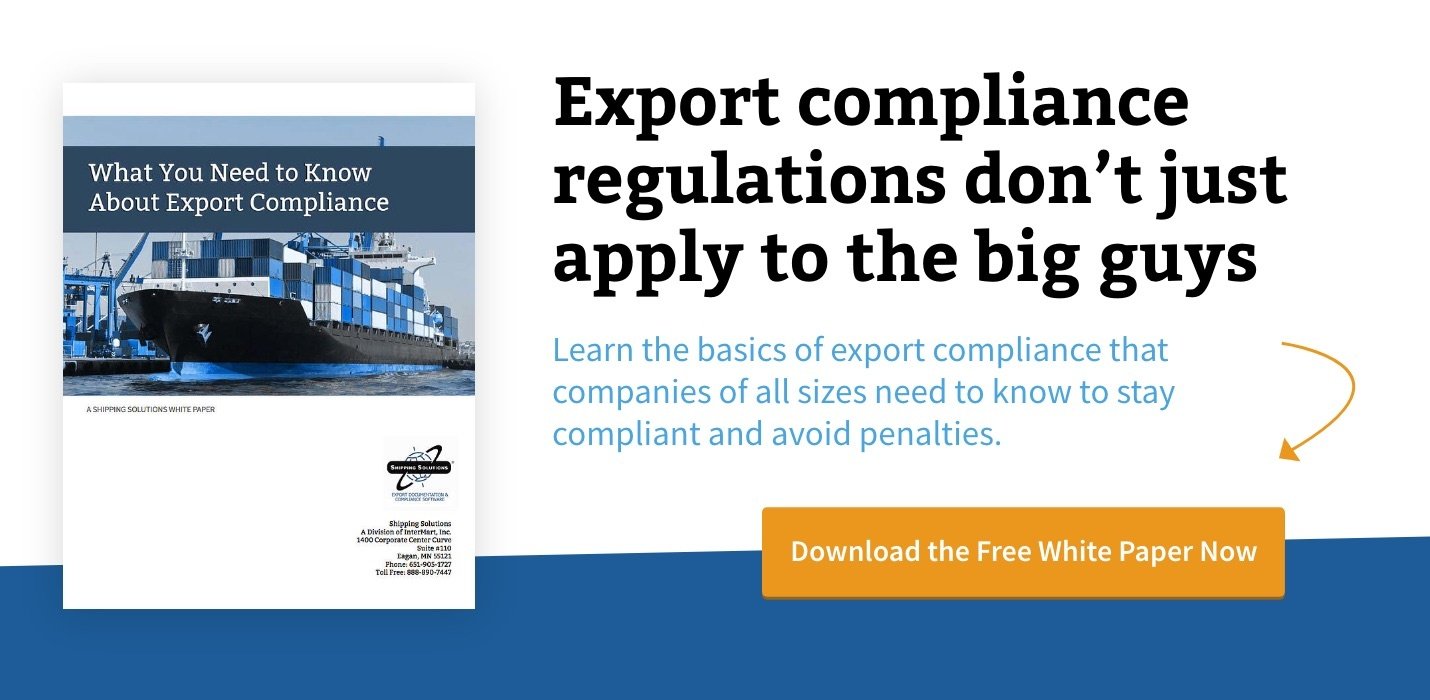The International Trade Blog International Sales & Marketing
Finding a Discrepancy in an International Letter of Credit
On: March 9, 2015 | By:  Roy Becker |
4 min. read
Roy Becker |
4 min. read
 A company in the garment business found a new supplier in South Korea. The supplier informed the buyer that they would ship the goods as soon as they received a letter of credit.
A company in the garment business found a new supplier in South Korea. The supplier informed the buyer that they would ship the goods as soon as they received a letter of credit.
A bank for which I worked issued the letter of credit based on the instructions the buyer gave us in the application for this, his first letter of credit. About two weeks later he called and asked to speak to me.
He said, "Roy, I don’t want you to pay on the letter of credit."
After retrieving the file, I told him that since we had not yet received documents from the factory, we had not made any payments. I informed him, however, that if we received documents that met the conditions of the letter of credit, we would have an obligation to pay.
His sigh indicated he did not like my answer, so I asked, "What is the problem with the letter of credit?"
He explained, "I received a shipment of samples from the early production line. The pants have a large pocket sewn to the outside of each pant-leg, with a smaller pocket sewn to the outside of the larger pocket. However, the stitching from the smaller pocket goes all the way through to the pant-leg, making the large pocket useless.
"If I accept the shipment, I will have labor costs to remove and re-stitch the pocket. It will eat up all my profit and more. I can’t afford to let you pay on the letter of credit."
I responded, "I understand your dilemma. However, I need to explain something about letters of credit to you. When a bank issues a letter of credit, it says to the beneficiary, 'If you present documents as required in this letter of credit, we will pay you.' As simple and straightforward as that.
"The bank can only refuse documents if the beneficiary presents them with discrepancies. Now that I’ve said that, I will also tell you that in my experience, at least 50% of the time we find discrepancies. If we find discrepancies we can refuse payment even if they have nothing to do with stitching."
Although, my in-house legal counsel probably would have disapproved of that conversation or my next action, I took a red marker and made a big notation on the outside of the file folder, "FIND A DISCREPANCY" and returned it to the filing cabinet.
I'm not sure my answer put him at ease. Now we simply had to wait for documents to arrive at the bank.
Three weeks later one of my co-workers appeared at my desk. She had the folder in her hand along with the documents, and asked, "Roy, who wrote this on the folder?" I admitted, "I did."
"Well," she said, "I just checked the documents and found eight discrepancies." I smiled and said, "You just made our customer happy. Let me call him."
I called the customer, "You can sleep well tonight. We found eight discrepancies. We’ll refuse payment and return the documents to the Korean bank."
Then, to my surprise, he said, "Oh no, no, don’t do that! I changed my mind! I want the goods after all." I didn’t ask why he changed his mind; I didn’t care. Perhaps the supplier caught the error before they ran full production. Perhaps they offered a discount on a future order.
I didn’t care because a bank deals in documents, not in goods. If the documents comply, the bank pays. If the documents have discrepancies, the bank can refuse payment or obtain the buyer’s waiver. In this case, by waiving the discrepancy, he authorized payment, received the documents, and took possession of the goods.
Article 16 of the Uniform Customs and Practice for Documentary Credits (UCP) addresses the procedure of handling discrepancies and acceptance or refusal of the documents.
This story debunks a common notion that four parties exist to a letter of credit: the applicant, the beneficiary, the issuing bank, and the confirming bank, if any. In truth, the applicant does not count as a party to the letter of credit.
Initially, this may appear illogical. However, if the applicant existed as a party to the letter of credit, our customer could have stopped the bank from paying, even if the documents appeared in perfect order.
Would a beneficiary accept such a letter of credit? It does not offer the security that an irrevocable letter of credit should provide. Although not explicitly stated, Article 10a of the UCP supports this concept: "[A] credit can neither be amended nor cancelled without the agreement of the issuing bank, the confirming bank, if any, and the beneficiary." Note: the applicant does not have to agree to an amendment.

About the Author: Roy Becker
Roy Becker was President of Roy Becker Seminars based in Centennial, Colorado. His company specialized in educating companies how to mitigate the financial risk of importing and exporting. Previous to starting the training company, Roy had over 30 years experience working in the international departments of several banks where he assisted many importers and exporters with the intricate banking needs associated with international trade.
Roy served as adjunct faculty in the International MBA programs at the University of Denver and University of Colorado in Denver. He conducted seminars at the World Trade Center Denver and The Center for Financial Training Western States, and was a guest lecturer at several Denver area Universities.
Roy retired in 2021.


